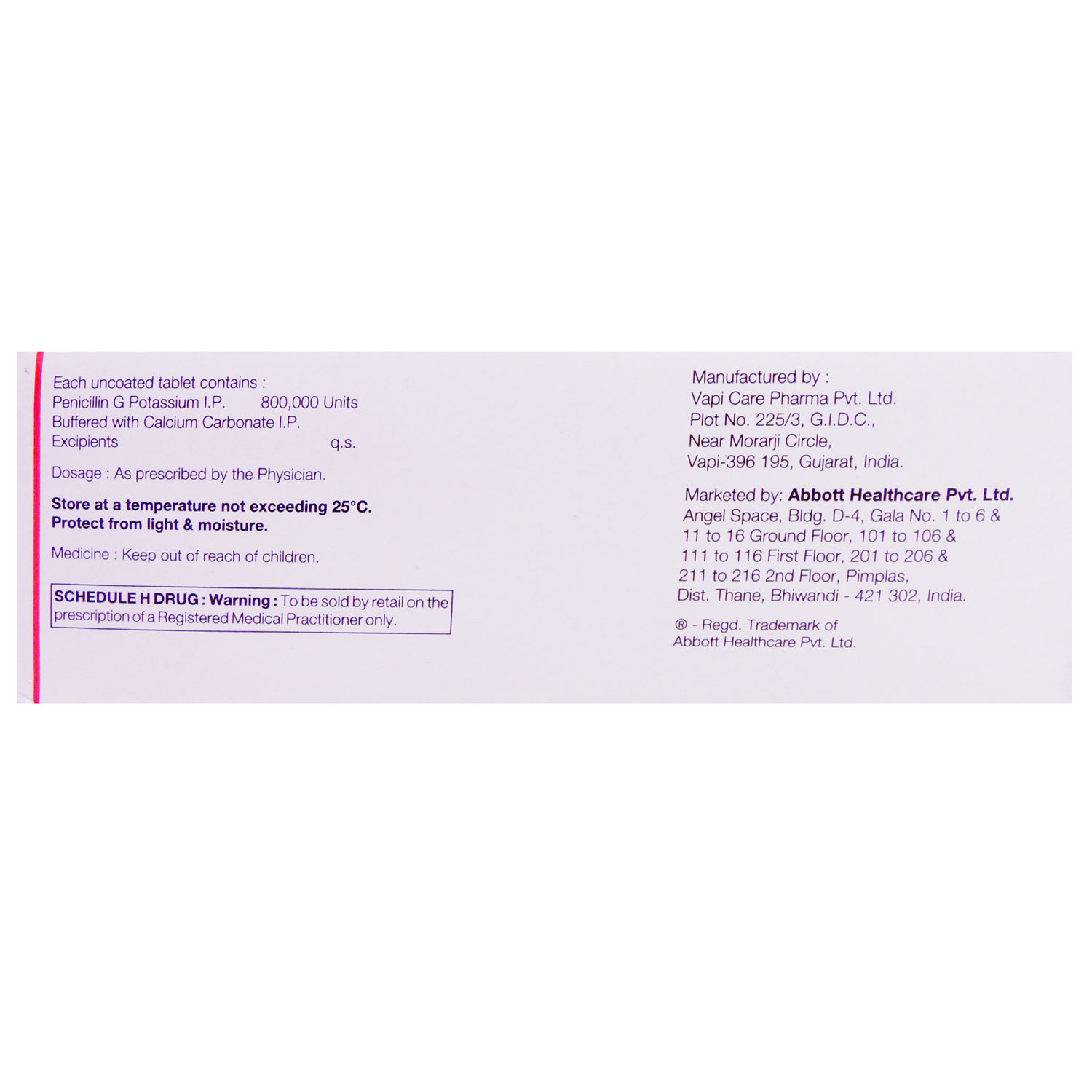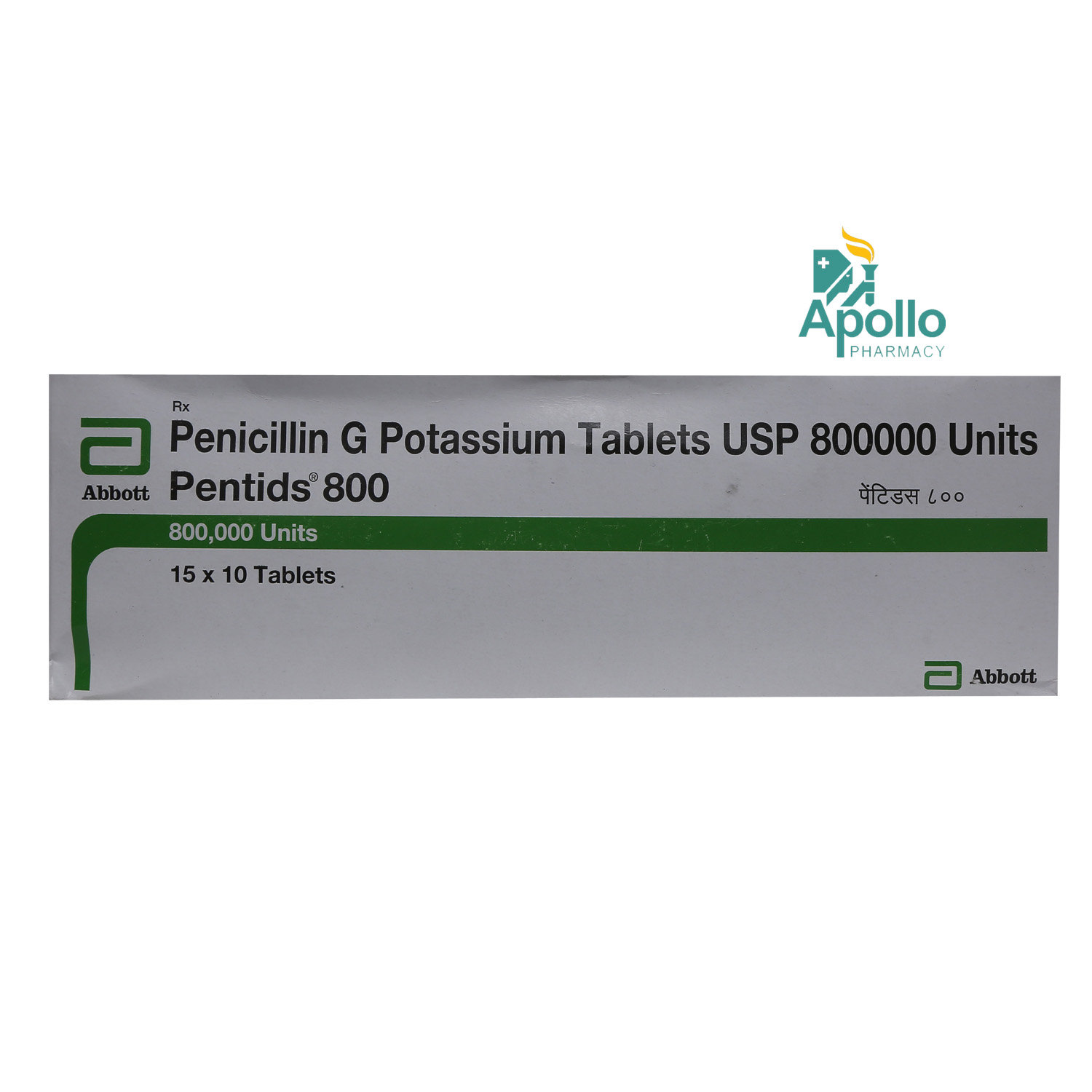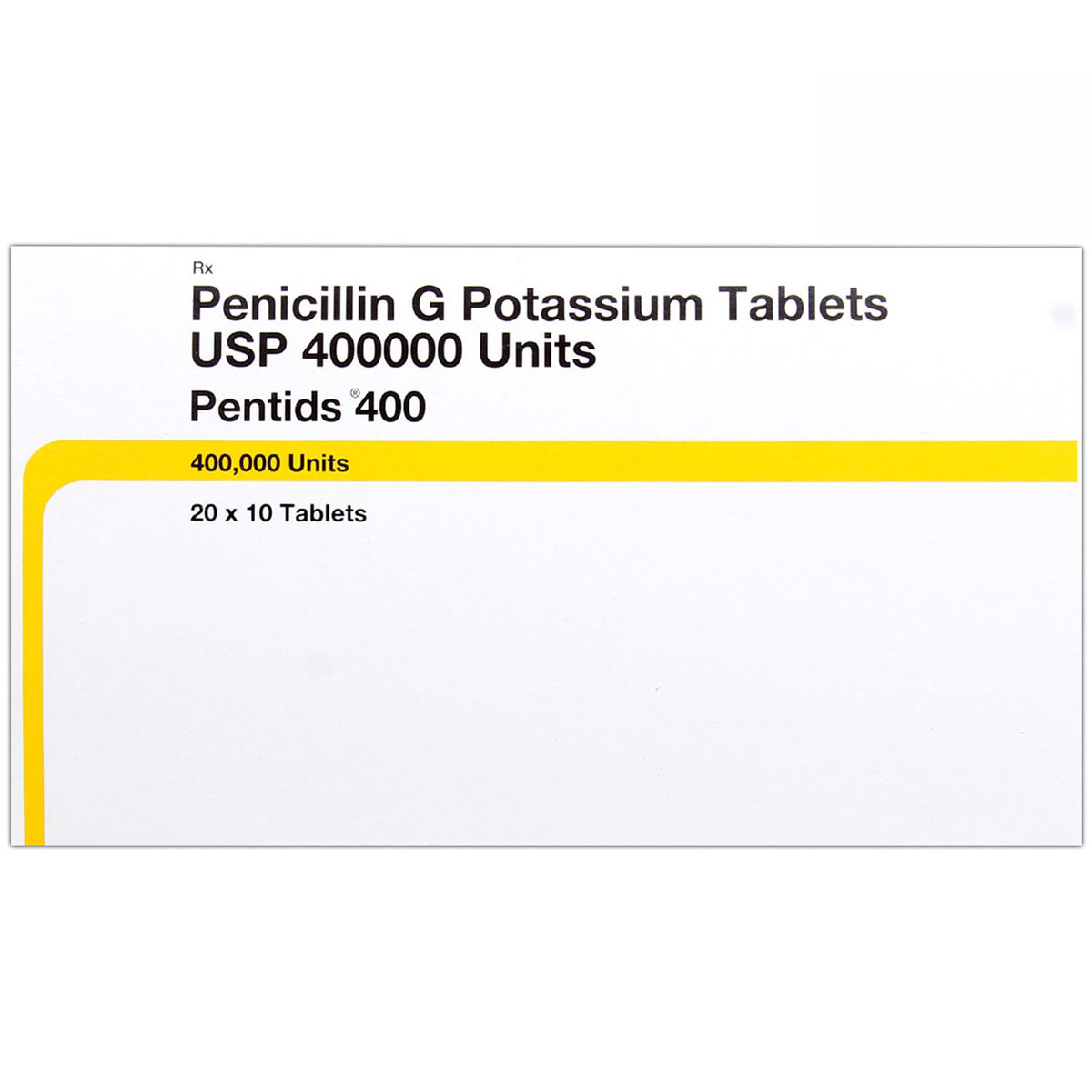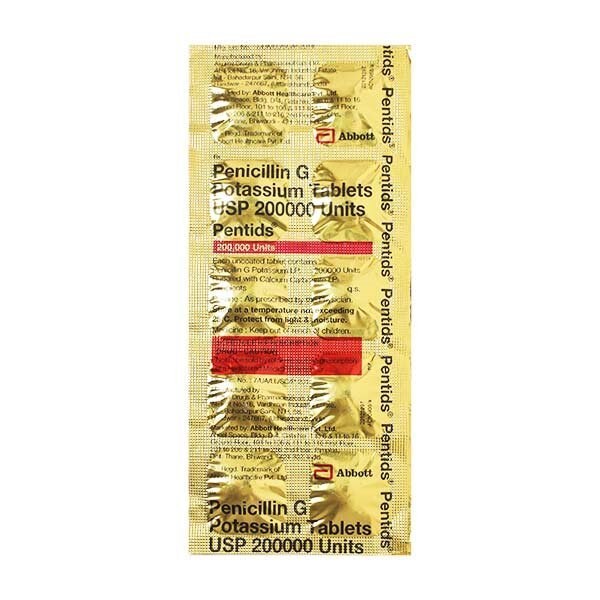Penicillin G Potassium
About Penicillin G Potassium
Penicillin G Potassium belongs to the 'antibiotics' class of drugs, primarily used to treat bacterial infections of the respiratory tract, throat, lungs, nose, and skin. It is useful in treating streptococci and staphylococci infections, diphtheria, meningitis, gonorrhoea, and syphilis. Bacterial infection occurs when harmful bacteria grow in the body and causes illness. It can infect any part of the body and multiply very quickly.
Penicillin G Potassium contains Penicillin G Potassium, an antibacterial agent. It has bactericidal (ability to kill bacteria) activity against gram-positive and gram-negative aerobic (requires oxygen to survive) and anaerobic (survives with little or no oxygen) bacteria. Penicillin G Potassium acts by binding to the penicillin-binding proteins (PBPs) inside the bacterial cell wall and inhibits its cell wall synthesis.
Your doctor will advise the dose and duration based on the severity of your infection. Penicillin G Potassium may cause side effects, although not everybody gets them. Common side effects of Penicillin G Potassium include stomach pain, headache, nausea, vomiting, diarrhoea, skin rash, yellow-coloured eyes and skin, weakness, and muscle/joint pain. If any of these effects persist or worsen, please seek medical advice promptly.
Brief your medical history to the doctor if you have any allergic reactions to antibiotics. Please inform your doctor if you have any liver/kidney/heart diseases and asthma before using Penicillin G Potassium. Do not use this medicine while having vaccinations with live bacterial vaccines (typhoid vaccine) since Penicillin G Potassium may affect the vaccines' activity. Consult your doctor if you are pregnant or breastfeeding before taking Penicillin G Potassium. Drinking alcohol may lead to unwanted side effects while using Penicillin G Potassium; hence please limit or avoid alcohol intake. Penicillin G Potassium should be used in children only when the doctor has prescribed it.
Uses of Penicillin G Potassium
Medicinal Benefits
Penicillin G Potassium contains Penicillin G Potassium, which belongs to the class of antibiotics. It has a bactericidal action against gram-positive and gram-negative aerobic and anaerobic bacteria. It acts by binding to the penicillin-binding proteins (PBPs) inside the bacterial cell wall and inhibits its cell wall synthesis. This process further leads to cell lysis or death. Thus, Penicillin G Potassium helps treat various bacterial infections.
Directions for Use
Storage
Side Effects of Penicillin G Potassium
- Stomach pain
- Headache
- Nausea
- Vomiting
- Diarrhoea
- Weakness
- Muscle/joint pain
Drug Warnings
If you have a history of asthma, kidney disease, stomach problems (nausea, vomiting, digestive issues), and heart or liver diseases, please inform your doctor before taking Penicillin G Potassium. Clostridium difficile-associated diarrhoea (CDAD) is reported during the usage of antibiotics like Penicillin G Potassium. Therefore, please undergo an examination to rule out the chances of CDAD if you experience diarrhoea following Penicillin G Potassium therapy. Let your doctor know if you are undergoing any vaccinations with live bacterial vaccines (like typhoid vaccine) since Penicillin G Potassium may affect vaccines' activity. Please seek medical advice if you are pregnant or breastfeeding before taking Penicillin G Potassium. Drinking alcohol may lead to unwanted side effects while using Penicillin G Potassium; hence please limit or avoid alcohol intake. Penicillin G Potassium should be used in children only when the doctor has prescribed it.
Drug Interactions
Drug-Drug Interaction: Penicillin G Potassium may interact with anticoagulants (warfarin), anti-cancer drugs (methotrexate), pain killers (aspirin, indomethacin), and antibiotics (tetracycline, chloramphenicol).
Drug-Food Interaction: Avoid excess alcohol consumption while taking Penicillin G Potassium.
Drug-Disease Interaction: Before taking Penicillin G Potassium, let your doctor know if you have allergic reactions to medicines, kidney disease, asthma, heart or liver diseases, and are undergoing dialysis treatment.
Drug-Drug Interactions Checker List:
Safety Advice

Alcohol
cautionAvoid alcohol consumption while taking Penicillin G Potassium to prevent unpleasant side effects, such as stomach upset, nausea, and vomiting.

Pregnancy
cautionPenicillin G Potassium should be cautiously used under medical guidance during pregnancy. Please consult your doctor before taking Penicillin G Potassium if you are pregnant or planning to conceive.

Breast Feeding
cautionPenicillin is excreted into the breast milk and may harm a nursing baby. Please consult your doctor before taking Penicillin G Potassium if you are breastfeeding.

Driving
cautionIt is unknown whether Penicillin G Potassium affects your ability to drive and operate machinery. Drive only if you are physically stable and mentally focused.

Liver
cautionLet your doctor know if you have any history of liver diseases before taking Penicillin G Potassium. Your doctor will prescribe Penicillin G Potassium only if the benefits outweigh the risk.

Kidney
cautionIf you have any history of kidney diseases before taking Penicillin G Potassium, please inform your doctor. Your doctor will prescribe Penicillin G Potassium only if the benefits outweigh the risk.

Children
cautionPenicillin G Potassium should be given to children only when prescribed by the doctor.
Habit Forming
Diet & Lifestyle Advise
- Include whole-grain foods like multigrain bread and brown rice in your diet.
- Taking probiotics after an antibiotic treatment reduces the risk of antibiotic-associated diarrhoea. Try taking yoghurt, cheese, sauerkraut, and kimchi as they help restore the intestine's good bacteria.
- Include more fibre-enriched food in your diet that is easily digested by your gut bacteria. Fibre foods may also help restore healthy gut bacteria after a course of antibiotics.
- Avoid intake of alcoholic beverages as they can make you dehydrated and affect your sleep.
- Manage stress, eat healthily, drink plenty of water, exercise regularly, and get plenty of sleep.
Special Advise
- Your doctor may advise renal, hepatic, and blood function tests during therapy.
- Penicillin antibiotics are easily removed during dialysis; hence let your doctor know if you are undergoing dialysis treatment so that the dose can be scheduled after the dialysis.
- Penicillin G Potassium may also affect urine glucose tests; hence inform your doctor beforehand if you are using Penicillin G Potassium.
Patients Concern
Disease/Condition Glossary
Bacterial infection: It occurs when harmful bacteria grow in the body and causes illness. It can infect any part of the body and multiply very quickly. Bacteria occur in three basic shapes: spherical, rod and spiral-shaped. Bacteria may be gram-positive (have a thick cell wall) or gram-negative (do not have a cell wall). Some common symptoms of a bacterial infection include cough, fever and tiredness.
FAQs
Penicillin G Potassium inhibits bacterial cell wall synthesis and causes cell lysis or death. Thus, Penicillin G Potassium helps in treating various bacterial infections.
Penicillin G Potassium should be used with proper caution and doctor consultation if you have allergic reactions to medicines, kidney diseases, heart or liver problems, and asthma. Inform your doctor if you are taking any diuretics/water pills and other antibiotics before starting this medicine.
Penicillin G Potassium can affect live vaccines like typhoid vaccine and decrease their effectiveness. Please consult a doctor before you start Penicillin G Potassium if you are due to undergo any vaccinations.
It is recommended to complete the course even if you feel better as it is an antibiotic, and stopping it midway may lead to recurring infections. Continue taking Penicillin G Potassium for as long as your doctor has prescribed to treat your condition effectually.
Certain formulations of Penicillin G Potassium may contain sodium. Hence, seek medical advice before starting this antibiotic if you are on a salt-restricted diet or have conditions like heart failure or high blood pressure that could be worsened by an increased salt intake.







